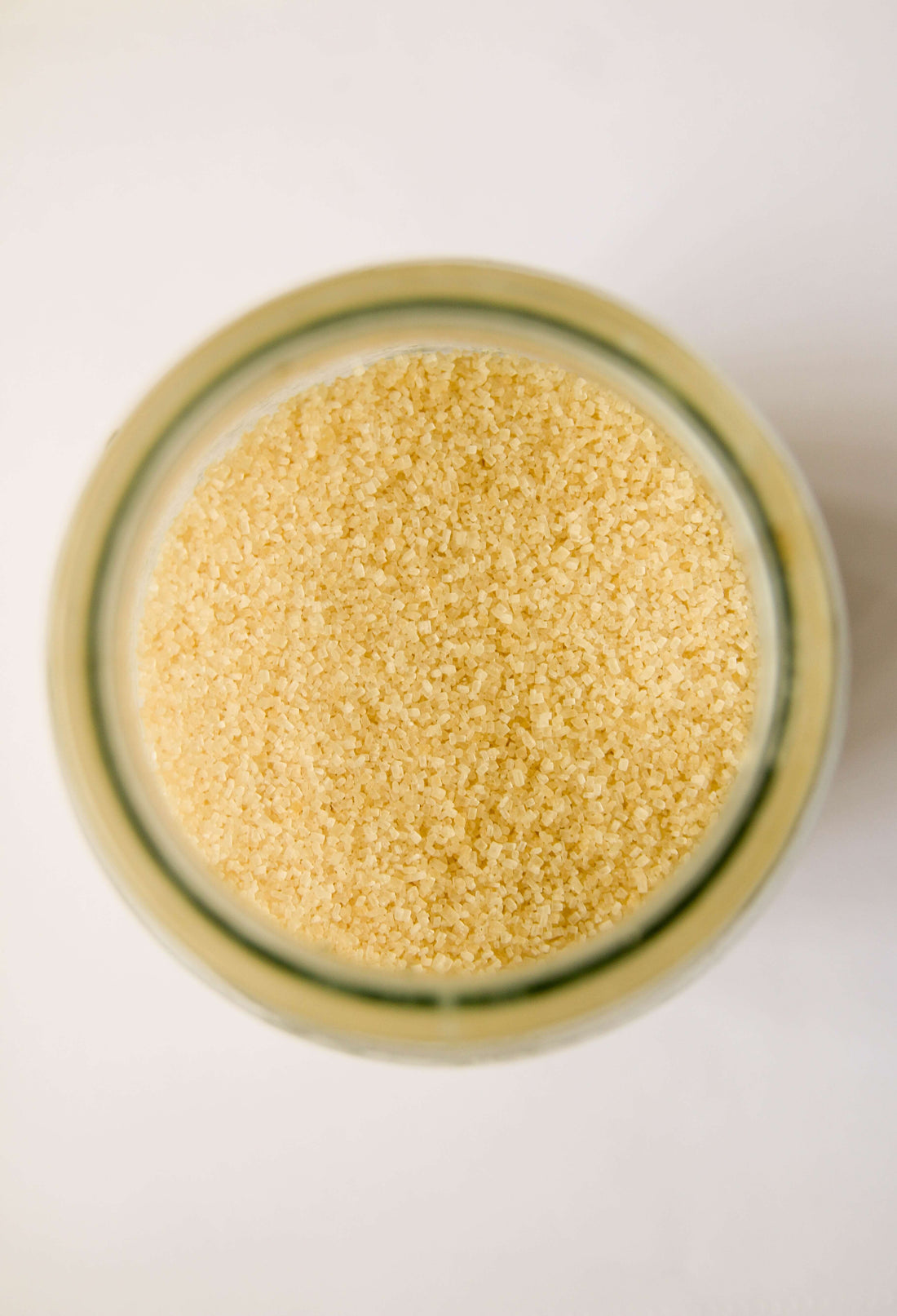
Sugar in CBD Drinks: What’s the deal?
Sugar is a big topic - and big business - so it’s no wonder that we often get asked about the sugar content in our CBD drinks. Authorities around the world recommend reducing sugar intake, especially from free sugars (those added to products), which come in a variety of different forms. Our drinks include a very small amount of beet sugar, which we’ve chosen for a variety of properties. However, all of our drinks are classed as low-sugar, meaning they have roughly 4g sugar per 100ml. But, what the heck is beet sugar and how does it differ to typical white cane sugar?
You think you know sugar? Let us break it down
Not all types of sugar react in the same way in the body. While sugar is a source of energy for the body, different types of sugar can have different effects on your health and metabolism.
Glucose - This is found in fruits, honey, vegetables and is the primary source of energy for our body’s cells. It gets broken down quickly and used for energy. However, if you have diabetes of insulin resistance, it can be harmful to you as it creates a rapid increase in blood sugar levels.
Fructose - This is another sugar naturally found in fruits and honey, as well as processed foods that contain high-fructose corn syrup. Unlike Glucose, this is metabolised in the liver, so consuming large volumes can lead to obesity, insulin resistance and other health problems.
Sucrose - This is your common table sugar, made from glucose and fructose. It’s found in lots of processed foods such as baked goods and sweet drinks. Like glucose and fructose, it should be consumed in moderation.
Maple syrup - This distinctive sweetener is a great alternative to refined sugar. It features a variety of antioxidants and minerals, meaning that there is a small nutritional benefit (lthough, watch nt to eat too much!). It also won’t spike your blood sugar as significantly as other sugars.
Xylitol - This is a naturally-ocurring sugar alcohol that is often used as a sweetener to replace other sugars. You’ll find it in sugar-free gum or sweets. Xylitol has a similar sweetness to sugar, but contains less calories and doesn’t spike your blood sugar as significantly. It’s also been shown to have dental benefits - but consuming too much can cause digestive issues.
Agave - This much-hyped natural sweetener is derived from the agave plant, which also makes tequila. It tastes sweeter and has a lower glycemic index than refined sugars, however, it is high in fructose, so as explained above, is digested in the liver.
Stevia - This is also a natural sweetener made from the Stevia rebaudiana plant. It originates in South America, but is now widely available. Like xylitol, it has lower calories and less impact on your blood sugar than other sugars. However, it has a distinct slightly bitter or licorice-like aftertaste, so isn’t always the best addition to food and beverage products.
Beet sugar - This sugar is derived from sugar beets, a root vegetable that’s high in sucrose. Sugar beets are harvested and then soaked in hot water to extract the sucrose. The crystals created from this liquid are a commonly-used sweetener for different types of food and drinks, especially as it has a pleasant taste. Like other sugars, it should still be consumed in moderation.
How much sugar should we consume each day?
The UK government advises against consuming more than 30 grams (about 7 teaspoons) of "free sugars" per day for adults and children over the age of 11.
Sugars that are added to food and beverages as well as those that are naturally present in honey, syrups, and fruit juices are referred to as "free sugars".
Those aged 4-6 should have no more than 19 grams (or 5 teaspoons) of free sugars daily, while those aged 7 to 10 should consume no more than 24 grams (or 6 teaspoons) daily. Toddlers between the ages of 1-3 shouldn't consume more than 16 grams (or 4 teaspoons) per day.
It's crucial to remember that ingesting an excessive amount of free sugar can lead to obesity, tooth decay, and other health issues. As a result, it is advised to consume as little free sugar as possible and to select meals and beverages with few added sugars.
The effects of consuming too much sugar
Too much sugar consumption can have a harmful impact on your health in a number of ways. These are some ways that consuming too much sugar might be bad for your health:
- gaining weight
- heightened danger of type 2 diabetes
- dental decay
- higher risk of heart disease
- poor nutrition
- addiction
- skin conditions
In conclusion, ingesting too much sugar can harm your health in a variety of ways, so it's crucial to pay attention to it and make an effort to limit it as much as you can.
Is there sugar in INTUNE CBD Soda?
INTUNE is here to serve delicious CBD drinks - we’re not a diet soda company! But, we understand that you don’t want to add too much excess sugar to your diet. That’s why we’ve worked hard to find the right balance for all of our drinks. For us, the perfect amount of sugar - under 4g/100ml - creates a drink that’s just sweet enough, but adult and sophisticated in taste.
For our INTUNE CBD Mixer range there’s a touch more sugar, as it’s needed to create a balanced drink with the addition of alcohol. Our tonic and lemon contain less than 5% sugar. The ginger content is below 7%, more sugar was needed here to counteract the earthy, spicy flavours.
Importantly, we have decided to use beet sugar. We tried a variety of sweeteners, but they all taste a bit weird! Beet sugar, however helped us create a range of moreish drinks, which we think you’ll love.
In conclusion, we should not aim to get any beneficial micronutrients from sugars, but rather from whole foods and natural sources of fruits, vegetables, nuts and seeds. While sugar is in many of the foods we love to hate, it could not be consumed to excess as this can lead to chronic illness. If you choose a food or beverage with sugar, look for something with a lower percentage, like our INTUNE CBD sodas, which also include other high-quality ingredients, such as our CBD. Cheers!
